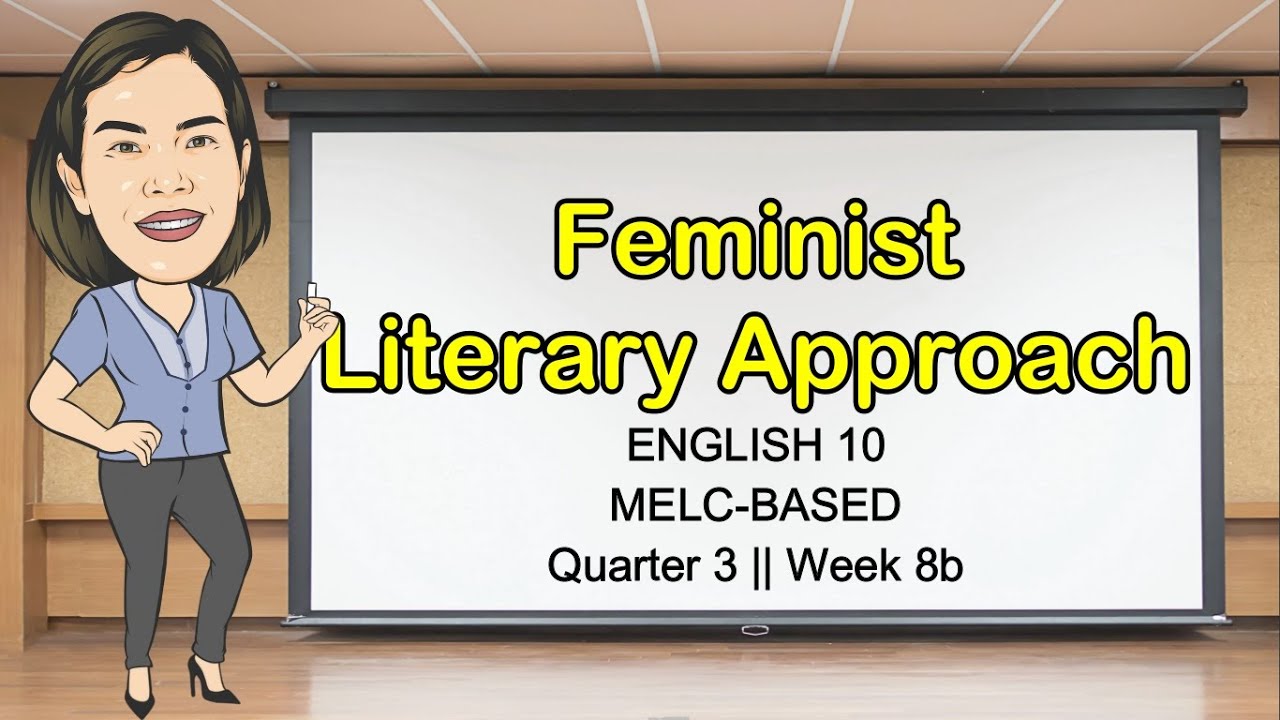INTRODUCTION TO LITERARY CRITICISM || QUARTER 3 WEEK 6 || GRADE 10 || MELC-Based || Aizie Dumuk
Summary
TLDRIn this educational video, Teacher Izzy introduces literary criticism as the analysis and interpretation of literature, focusing on themes, style, and context. She outlines its purpose: to understand the text's essence, the author's relationship with the text, and to enhance reading enjoyment. The video maps out various approaches to criticism, including formalism, historical, intertextual, reader response, and more, emphasizing the importance of an open mind and diverse viewpoints. Izzy encourages viewers to explore different perspectives to enrich their literary insights.
Takeaways
- 📚 Literary criticism is the analysis, interpretation, and evaluation of literature, focusing on aspects like theme, style, setting, and historical or political context.
- 🔍 It serves to understand the essence of a text, the relationship between the author and the text, and to enhance the enjoyment of reading.
- 🎨 There are two main functions of literary criticism: to analyze literature and to form general principles for examining literary works.
- 🧩 The literary criticism map includes four critical variables: author's world, author's life, text itself, and readers.
- 📜 Formalism and deconstruction focus primarily on the text, disregarding external factors like the author or historical context.
- 📚 Historical approach emphasizes understanding the author's beliefs, time, and history to interpret the work.
- 🌐 Intertextual approach compares the work with other literature to provide a broader perspective.
- 👀 Reader-response focuses on how the audience interprets the work, suggesting that meaning is created by the reader, not solely by the author or the work.
- 🌍 Memetic criticism assesses the work's alignment with the real world, considering its accuracy, correctness, and morality.
- 🔮 Archetypal criticism identifies universal symbols, images, characters, and motives that resonate across cultures and races.
- 🧠 Psychological criticism delves into the behavioral motivations of characters and may extend to the author's and reader's psychological states during the writing and reading process.
- 🏛 Marxist criticism examines the social class conflicts, particularly between the bourgeoisie and proletariat, as they influence the narrative.
- 👩🎓 Feminist criticism analyzes the portrayal of women's roles in society and challenges the literary construction of gender.
- 🌟 There is no single 'best' literary approach; a good approach is to keep an open mind and consider multiple viewpoints.
Q & A
What is literary criticism?
-Literary criticism is the comparison, analysis, interpretation, and/or evaluation of works of literature. It is an opinion supported by evidence relating to theme, style, setting, or historical and political context.
Why is literary criticism important?
-Literary criticism is important because it helps us understand the essence of a text, reveals the relationship between the author and the text, and enhances the enjoyment of reading literary works.
What are the two main functions of literary criticism?
-The two main functions of literary criticism are to analyze, study, and evaluate works of literature, and to form general principles for the examination of works of literature.
What are the four critical variables in literary criticism?
-The four critical variables in literary criticism are the author's world, author's life, the text itself, and the readers.
How does the historical approach in literary criticism differ from other approaches?
-The historical approach relies heavily on understanding the author and his world to interpret the work, emphasizing the importance of the author's beliefs, time, and history in making sense of the literary work.
What is the main focus of formalism and deconstruction in literary criticism?
-Formalism and deconstruction primarily deal with the text itself, focusing on the language, structure, and form of the work without considering external factors like the author or the real world.
How does reader-response criticism view the creation of meaning in a literary work?
-Reader-response criticism posits that the meaning of a literary work is created by the audience, emphasizing the reader's experience and interpretation rather than the author's intent or the work itself.
What does intertextual criticism involve?
-Intertextual criticism involves comparing the work in question to other literature to gain a broader understanding of its themes, influences, and context within the literary tradition.
What is the primary concern of feminist criticism in literary analysis?
-Feminist criticism is concerned with a woman's role in society as portrayed through texts, analyzing the depiction of women and critiquing the literary construction of gender roles.
How does Marxist criticism approach the analysis of literature?
-Marxist criticism analyzes the clash of opposing social classes in society, particularly the ruling class (bourgeoisie) and the working class (proletariat), and how these class dynamics shape the events and themes within the literary work.
What is the best literary approach to use, according to the video?
-There is no single 'best' literary approach; rather, varying approaches and keeping an open mind to different viewpoints can enrich one's insights into a literary work.
Outlines

This section is available to paid users only. Please upgrade to access this part.
Upgrade NowMindmap

This section is available to paid users only. Please upgrade to access this part.
Upgrade NowKeywords

This section is available to paid users only. Please upgrade to access this part.
Upgrade NowHighlights

This section is available to paid users only. Please upgrade to access this part.
Upgrade NowTranscripts

This section is available to paid users only. Please upgrade to access this part.
Upgrade NowBrowse More Related Video

HISTORICAL LITERARY APPROACH + EXAMPLE || QUARTER 3 WEEK 8 || MELC-Based || Aizie Dumuk

FEMINIST LITERARY APPROACH + EXAMPLE || QUARTER 3 WEEK 8 || English10 || MELC-Based || Aizie Dumuk

Literary Criticism vs. Literary Theory Key Difference | Literary Criticism | Literary Theory

SHS 21st Century Literature Q1 Ep6: Creative Representation of a Literary Text

Teori, Sejarah dan Kritik Sastra | Apa hubungannya?

10 Types of Literary Criticism
5.0 / 5 (0 votes)